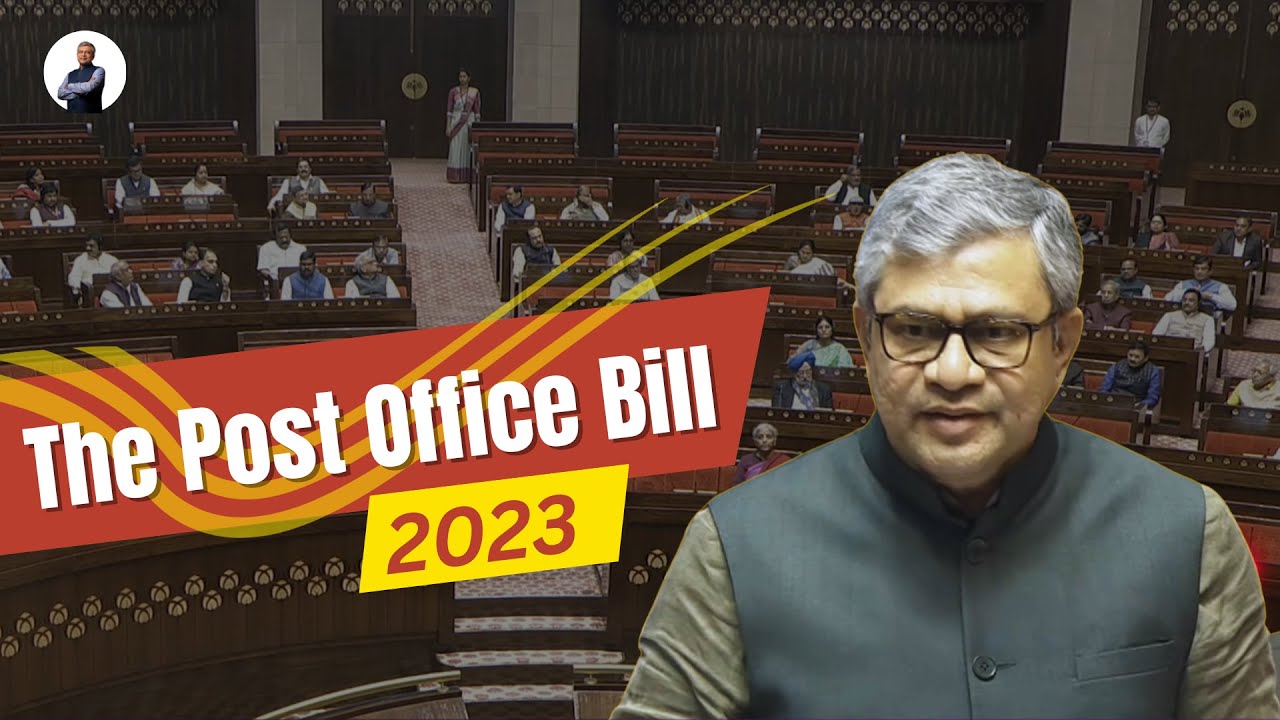One more instance of weaponising of the law and ensuring an assault on privacy has come in the face of the Post Office Bill, 2023 (The Bill) that ostensibly seeks to replace the colonial era Indian Post Office Act, 1898 (The Act)
What does Bill do?
Postal Services comes under List I of the Seventh Schedule meaning that the Union has the exclusive right to make laws on Postal Services. Postal Services are given through the famed Indiapost.
The Act provides an exclusive privilege to the Union Government to be the only body engaged in the service of delivering posts; however the new bill does not provide such privilege. However, the exclusive privilege of issuing postage stamps is with the Post Office.
The Bill, through Section 3, delegates the power to the Union Government to decide on the services that a Post Office can provide. This is not the only case in which the power to make further law is given to the Union Government. Section 5 of the Bill states that the Union Government has the power to prescribe standards for addressing on the items, address identifiers. The Bill also empowers the Director General of the Post Offices to make regulations for carrying out the prescribed actions under the Act, with the prior approval of the Central Government.
Power to Intercept
The Bill has, via Section 9, given the Union government power to empower any officer to cause any item in course of transmission by the Post Office to be intercepted, opened or detained in the interest of security of the state, friendly relations with foreign states, public order, emergency, or public safety or upon the occurrence of any contravention of any of the provisions of the Bill or any other law for time being in force.
Cause for Concern
Section 9 of the Bill is the cause for concern –expressed by citizens and among the Opposition –both of whom have argued that the right to privacy is seriously threatened due to the powers given to the government to empower any officer to intercept and detain a postal communication.
This power is not new to the extent that any officer of the state/Central government who is authorised to do so, can direct that any postal article or class or description of postal articles in course of transmission by post to be intercepted or detained, under the existing Indian Post Office Act, 1898. However, the similarity between the colonial era Post Office Act and the independent 21st Century India’s act and the upgrades in terms of arbitrary powers granted to the officers is concerning.
While the 1898 Act assigns reasons of public safety, tranquillity and emergency as the reasons for the interception- one more reason, “public order” has also been added via the bill. The traditional and widely accepted restrictions on fundamental rights – security of the state, friendly relations with the foreign states also apply.
Rajya Sabha members including Shaktisinh Gohil of the Indian National Congress, Sukhendu Sekhar Ray of the All-India Trinamool Congress, Santosh Kumar of the CPI argued that this could lead to a potential surveillance mechanism by the Government. The CPI(M), along with the Privacy critique, took a different route to criticise the Bill to say that only the Union Government has the power to intercept, and the state government does not![1]
The fact that a new age bill does not have more illustrative provisions which would not only make the law accessible to the common person but also immune to abuse by the government is indeed an issue. For example, the Union Government can empower the officer to intercept a postal transmission-a letter- in the interest of emergency. There is no provision to explain what the word ‘emergency’ means- whether it is the Emergency that is dealt with in the Constitution under Articles 352 and 356 or if it is an emergency for all the cases the government may deem urgently needing attention.
Conclusion
These vague definitions of important clauses, coupled with the excessive delegated legislation, the Bill suffers from the very colonial nature that it seeks to replace. Section 10 of the Bill also sheds all liability of the Post Office except those that are to be prescribed by the government later on- meaning that there is no set liability within the act and government can change it whenever it wants to. The Post Office Bill, essentially, looks like a legislation that a government would want to bring when it wants to shed responsibility but wants to take over disproportionate amounts of power.
[1] PTI, 2023. New Post Office Bill infringes right to privacy, will make us surveilled country:Opposition in Rajya Sabha. Deccan Herald, https://www.deccanherald.com/india/delhi/new-post-office-bill-infringes-right-to-privacy-will-make-us-surveilled-country-opposition-in-rajya-sabha-2796328
Related:
Broadcasting Bill adverse to freedom of speech & freedom of press: EGI

